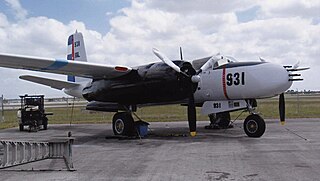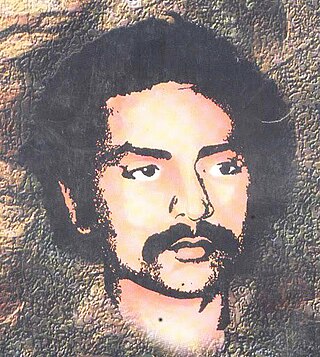Related Research Articles

Seymour Myron "Sy" Hersh is an American investigative journalist and political writer. He gained recognition in 1969 for exposing the My Lai massacre and its cover-up during the Vietnam War, for which he received the 1970 Pulitzer Prize for International Reporting. During the 1970s, Hersh covered the Watergate scandal for The New York Times, also reporting on the secret U.S. bombing of Cambodia and the Central Intelligence Agency's (CIA) program of domestic spying. In 2004, he detailed the U.S. military's torture and abuse of prisoners at Abu Ghraib in Iraq for The New Yorker. Hersh has won a record five George Polk Awards, and two National Magazine Awards. He is the author of 11 books, including The Price of Power: Kissinger in the Nixon White House (1983), an account of the career of Henry Kissinger which won the National Book Critics Circle Award.
State-sponsored terrorism is terrorist violence carried out with the active support of national governments provided to violent non-state actors. States can sponsor terrorist groups in several ways, including but not limited to funding terrorist organizations, providing training, supplying weapons, providing other logistical and intelligence assistance, and hosting groups within their borders. Because of the pejorative nature of the word, the identification of particular examples are often subject to political dispute and different definitions of terrorism.

The Special Activities Center (SAC) is a division of the United States Central Intelligence Agency responsible for covert and paramilitary operations. The unit was named Special Activities Division (SAD) prior to 2015. Within SAC there are two separate groups: SAC/SOG for tactical paramilitary operations and SAC/PAG for covert political action.
The Research and Analysis Wing (R&AW) is the foreign intelligence agency of India. The agency's primary function is gathering foreign intelligence, counter-terrorism, counter-proliferation, advising Indian policymakers, and advancing India's foreign strategic interests. It is also involved in the security of India's nuclear programme.

A black operation or black ops is a covert or clandestine operation by a government agency, a military unit or a paramilitary organization; it can include activities by private companies or groups. Key features of a black operation are that it is secret and it is not attributable to the organization carrying it out.

The Inter-Services Intelligence is the largest and best-known component of the Pakistani intelligence community. It is responsible for gathering, processing, and analyzing any information from around the world that is deemed relevant to Pakistan's national security. The ISI reports to its director-general and is primarily focused on providing intelligence to the Pakistani government.

The Central Intelligence Agency (CIA), known informally as the Agency, metonymously as Langley and historically as the Company, is a civilian foreign intelligence service of the federal government of the United States tasked with gathering, processing, and analyzing national security information from around the world, primarily through the use of human intelligence (HUMINT) and conducting covert action through its Directorate of Operations. The agency is headquartered in the George Bush Center for Intelligence in Langley, Virginia.

Pakistan and the United States established relations on 15 August 1947, a day after the independence of Pakistan, when the United States became one of the first nations to recognize the country.

Operation Cyclone was the code name for the United States Central Intelligence Agency (CIA) program to arm and finance the Afghan mujahideen in Afghanistan from 1979 to 1992, prior to and during the military intervention by the USSR in support of the Democratic Republic of Afghanistan. The mujahideen were also supported by Britain's MI6, who conducted their own separate covert actions. The program leaned heavily towards supporting militant Islamic groups, including groups with jihadist ties, that were favored by the regime of Muhammad Zia-ul-Haq in neighboring Pakistan, rather than other, less ideological Afghan resistance groups that had also been fighting the Soviet-oriented Democratic Republic of Afghanistan administration since before the Soviet intervention.

The National Directorate of Security was the national intelligence and security service of the Islamic Republic of Afghanistan. The headquarters of the NDS was in Kabul, and it had field offices and training facilities in all 34 provinces of Afghanistan. The NDS was part of the Afghan National Security Forces (ANSF).

The Afghanistan conflict began in 1978 and has coincided with several notable operations by the United States (U.S.) Central Intelligence Agency (CIA). The first operation, code-named Operation Cyclone, began in mid-1979, during the Presidency of Jimmy Carter. It financed and eventually supplied weapons to the anti-communist mujahideen guerrillas in Afghanistan following an April 1978 coup by the People's Democratic Party of Afghanistan (PDPA) and throughout the nearly ten-year military occupation of Afghanistan by the Soviet Union (U.S.S.R.). Carter's successor, Ronald Reagan, supported an expansion of the Reagan Doctrine, which aided the mujahideen along with several other anti-Soviet resistance movements around the world.
This is a list of activities ostensibly carried out by the U.S. Central Intelligence Agency (CIA) within Pakistan. It has been alleged by such authors as Ahmed Rashid that the CIA and ISI have been waging a clandestine war. The Afghan Taliban—with whom the United States was officially in conflict—was headquartered in Pakistan's Federally Administered Tribal Areas during the war and according to some reports is largely funded by the ISI. The Pakistani government denies this.
Brigadier Imtiaz Ahmed, SBt, TI(m), also known as Imtiaz Billa, is a retired engineering officer in the Pakistan Army Corps of Engineers, and former spy, who served as the Director-General of the Intelligence Bureau from 1990 to 1993.

Nazeer Abbasi was the youngest member of the Central Committee of the Communist Party of Pakistan. He was tortured to death on August 9, 1980 in government of Muhammad Zia-ul-Haq while in the custody of FIU Field Intelligence Unit of Pakistan Army. His family has accused former ISI operative Brigadier Imtiaz Ahmed Billa of torturing and killing Abbasi while in his custody, and Billa has admitted this in a TV interview.

The Federal Investigation Agency is a border control, criminal investigation, counter-intelligence and security agency under the control of the Interior Secretary of Pakistan, tasked with investigative jurisdiction on undertaking operations against terrorism, espionage, federal crimes, smuggling as well as infringement and other specific crimes.
The Camp Chapman attack was a suicide attack by Humam Khalil Abu-Mulal al-Balawi against the Central Intelligence Agency facility inside Forward Operating Base Chapman on December 30, 2009. One of the main tasks of the CIA personnel stationed at the base was to provide intelligence supporting drone attacks in Pakistan. Seven American CIA officers and contractors, an officer of Jordan's intelligence service, and an Afghan working for the CIA were killed when al-Balawi detonated a bomb sewn into a vest he was wearing. Six other American CIA officers were wounded. The bombing was the most lethal attack against the CIA in more than 25 years.

The Inter–Services Intelligence has been alleged or previously documented by various authors of running an active military intelligence program in the United States, as well as operational activities related to America outside the country.

The Military of the Islamic State is the fighting force of the Islamic State (IS). The total force size at its peak was estimated from tens of thousands to over two hundred thousand. IS's armed forces grew quickly during its territorial expansion in 2014. The IS military, including groups incorporated into it in 2014, openly operates and controls territory in multiple cities in Libya and Nigeria. In October 2016, it conquered the city of Qandala in Puntland, Somalia. It conquered much of eastern Syria and western Iraq in 2014, territory it lost finally only in 2019. It also has had border clashes with and made incursions into Lebanon, Iran, and Jordan. IS-linked groups operate in Algeria, Pakistan, the Philippines, and in West Africa. In January 2015, IS was also confirmed to have a military presence in Afghanistan and in Yemen.

The Sistan and Baluchestan insurgency is an ongoing low-intensity asymmetric conflict in Sistan and Baluchestan Province between Iran and several Baloch Sunni militant organizations designated as terrorist organizations by the Iranian government. It began in 2004 and is part of the wider Balochistan conflict.
Muhammad Riaz Khan was a Pakistan Army general who was the 6th Director-General of the Inter-Services Intelligence (ISI), serving from 1978 to 1979. Prior to that, he served at the General Headquarters as Adjutant-General of the Pakistan Army.
References
- 1 2 Abbasi, Ansari. "Political Deception". Political Deception. Retrieved 21 May 2013.
- ↑ Staff (February 23, 2011). "Exclusive" . Retrieved 21 May 2013.
- 1 2 Zaffar Abbas (September 1, 2009). "Only bean-spilling spooks can tell why". Dawn News. Retrieved 21 May 2013.
- ↑ Abbasi, Ansar (3 September 2009). "Brig Imtiaz reveals CIA plots". The News International. Retrieved 21 May 2013.
- ↑ "Jilts over the program". India Today. Retrieved 21 May 2013.